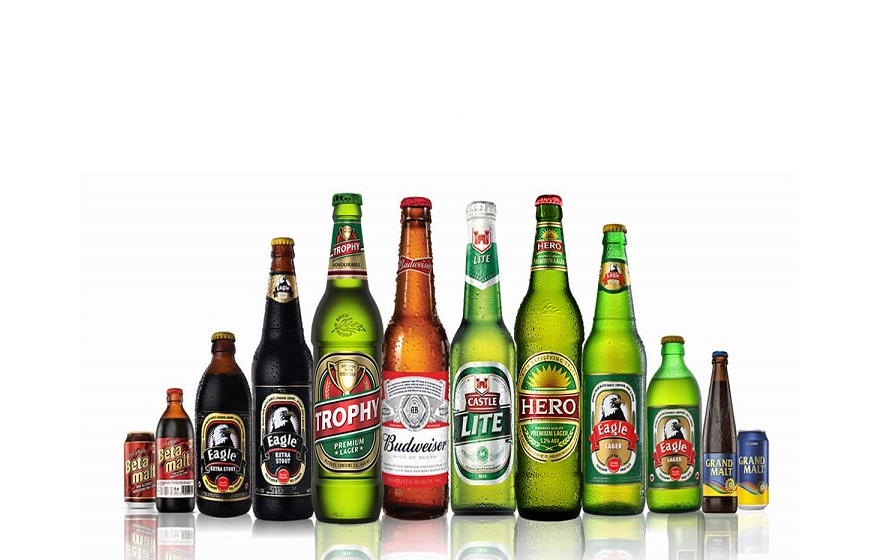International Breweries opened its N588 billion rights issue programme on May 21, 2024.
The brewer seeks to issue 161,172,395,100 new ordinary shares of 2 kobo each at an offer price of N3.65 per share.
According to the rights issue circular, the terms include six new ordinary shares for every share held by existing shareholders. The programme is expected to run until June 10, 2024.
Currently, International Breweries has 26,862,069,000 fully issued shares, with its share price at N3.99. Thus, the offer price of N3.65 for the new shares represents a modest 9% haircut, considering the number of shares to be issued.
The group’s share capital is N13.43 billion. However, if the new shares are fully issued, the share capital is set to increase to N16.65 billion. And the group’s total equity is expected to increase from the current N5.35 billion to N593.63 billion.
This is coming less than four years after the group raised N165 billion in a rights issue in 2020.
International Breweries Plc since AB InBev acquisition
In 2016, Anheuser-Busch InBev (AB InBev) acquired SABMiller, then the world’s second-largest brewer.
This acquisition included all of SABMiller’s Nigerian subsidiaries: Intafact Beverages Limited in Onitsha, International Breweries Plc in Ilesha, and Pabod Breweries Limited in Port Harcourt.
The three breweries were merged into one under the International Breweries label in 2017, with AB InBev being the majority shareholder.
Before the merger, International Breweries (Ilesha) had been a relatively profitable business, as it posted a net income of N1.03 billion for the fiscal year ending March 31, 2017.
However, as part of the merger, the operational capacity as well as liabilities of the three businesses were merged into one, thus pushing the business into a region of net losses.
In 2018, the newly consolidated IB Plc posted a net loss of N8.05 billion, as its total assets moved from N43.56 billion as of April 2017 (before the merger) to N310.28 billion as of December 2018.
In a strategic move to strengthen its position as one of Nigeria’s leading brewers, International Breweries inaugurated the country’s largest brewery, the Gateway Brewery, in Sagamu, Ogun State, in 2018.
The group’s efforts at consolidating in the Nigerian beer market have yielded results, as it is now the second largest revenue-generating brewer in Nigeria, ahead of Guinness Nigeria Plc and behind Nigerian Breweries.
Financial situation since 2018
Since 2018, IB Plc has been on a run of losses, posting net losses of N27.8 billion for 2019, N16.1 billion for 2020, N17.7 billion for 2021, N21.6 billion for 2022, and N70.0 billion for 2023. It posted a net loss of N89.4 billion for Q1 2024.
Thus, the group’s retained losses have moved from N2.94 billion as of FYE 2019 to N188.7 billion as of Q1 2024 ending. To mitigate the effects of these losses, IB Plc as well as its majority shareholder AB InBev have taken steps over the years.
In 2020, AB InBev made a capital injection of N123 billion into IB Plc via the rights issue, as the group raised N164.4 billion in the rights issue programme. The 2020 rights issue programme increased AB InBev’s shareholding in the group to 78.44% from 47.37%.
However, since the rights issue of 2020, macroeconomic instability, FX shortages, and inflationary pressures have plagued the Nigerian manufacturing scene.
Since 2020, International Breweries’s raw materials cost has increased by 71% from N79.9 billion as of 2020 to N136.8 billion as of 2023.
To help with its liabilities, the group received its shareholders’ approval to convert a $379.9 million loan from its majority shareholder, AB InBev to equity.
It is yet unknown how much of the newly issued shares are pre-allocated to AB InBev.
However, with AB InBev already owning 21,069,512,368 of the group’s 26,862,069,000 fully issued shares, its shareholding in IB Plc is likely to increase if minority shareholders do not exercise their rights to swipe up the new shares.
